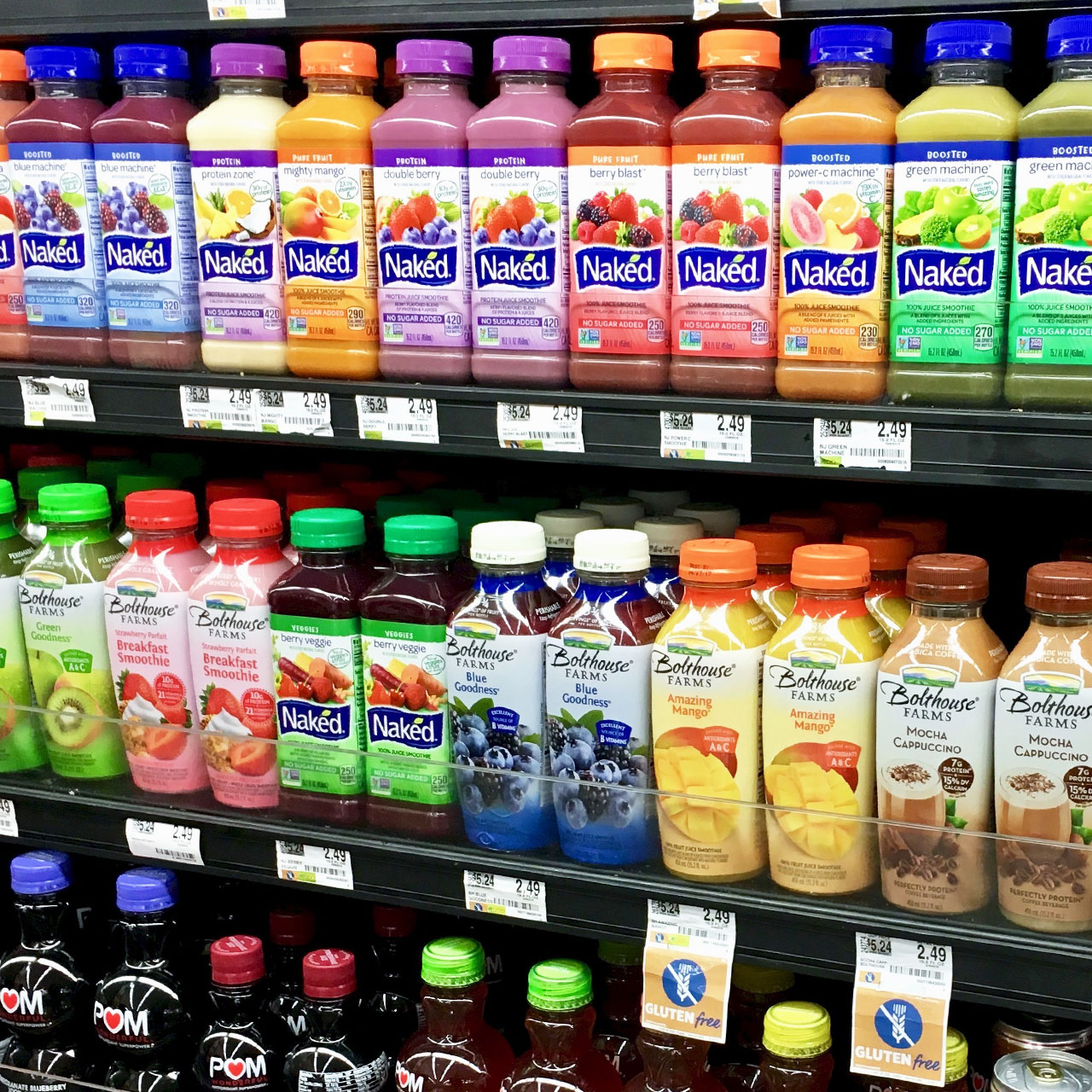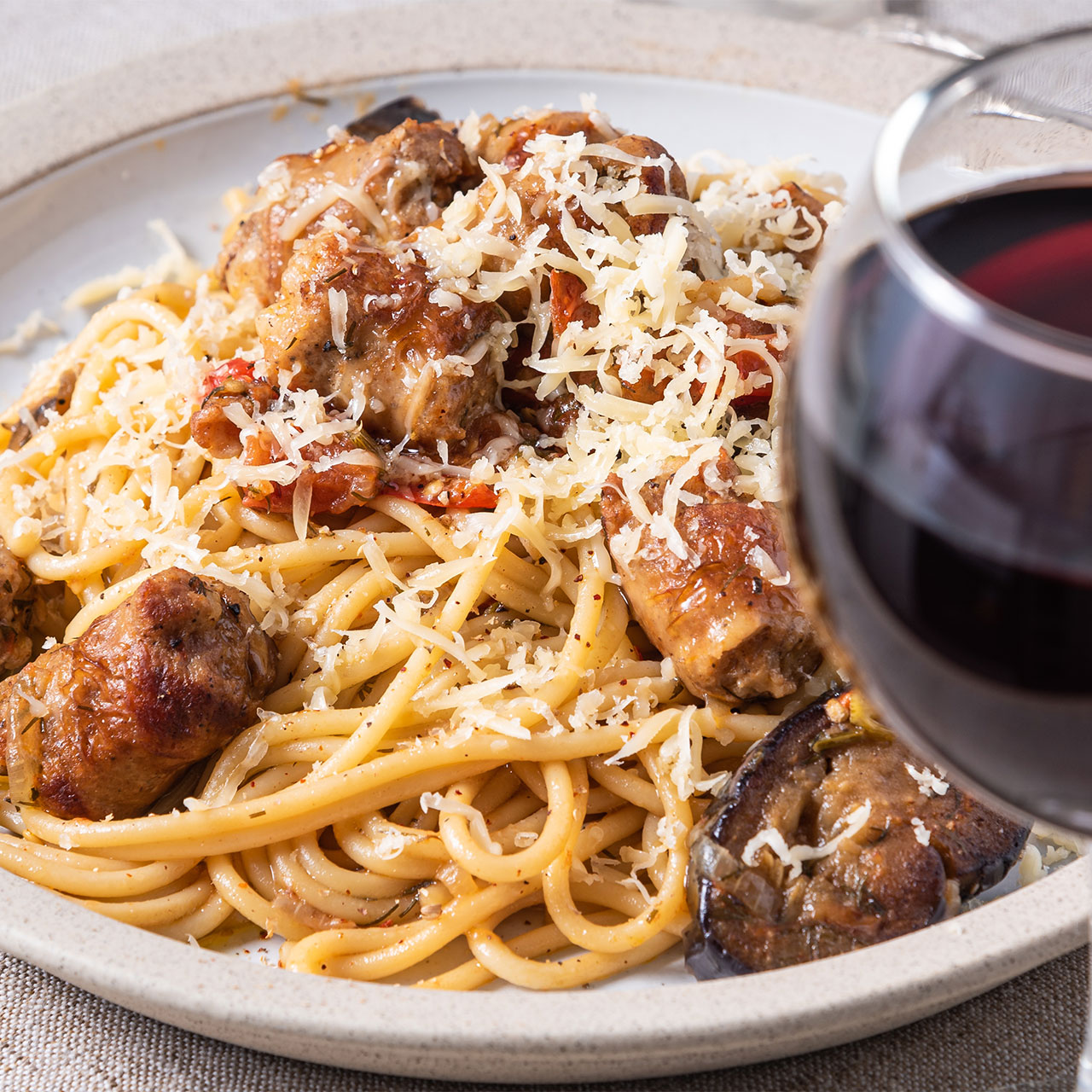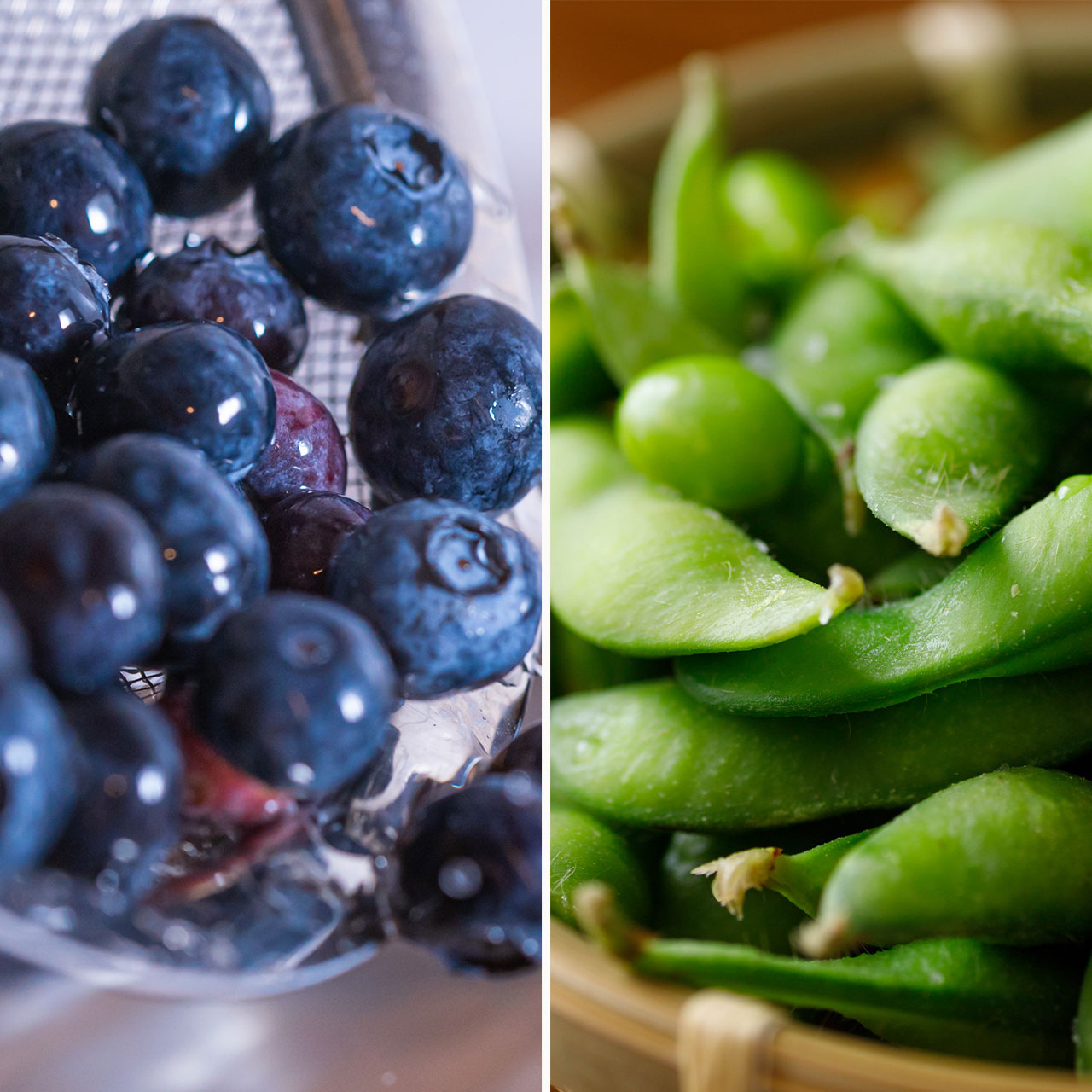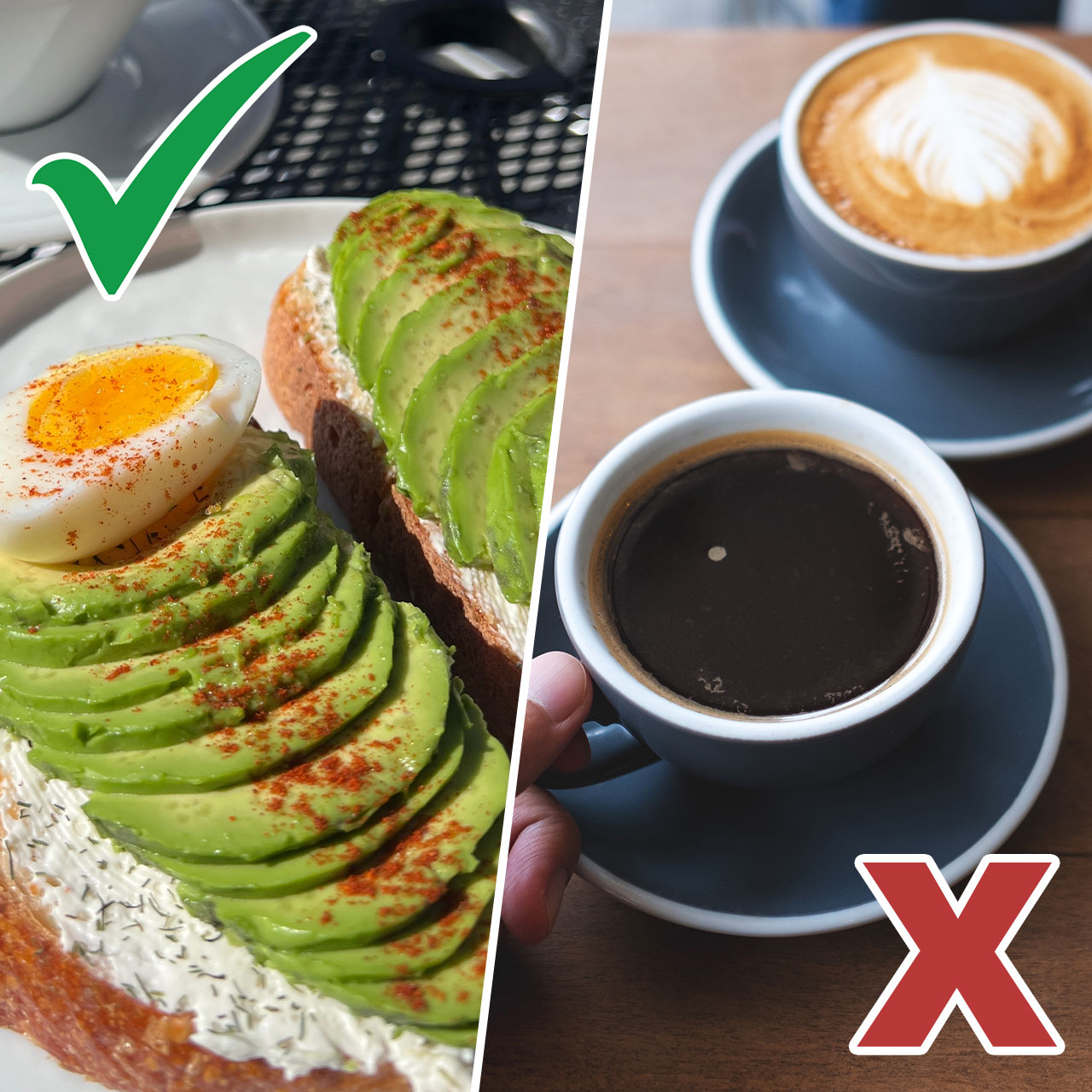This post has been updated since it was originally published on February 9, 2022.
Cooking meals at home is a great way to save money in general, and this also can help you lose weight. Regarding meal proportions, you’re able to set goals and follow them when preparing meals for yourself.
If you do enjoy cooking at home and are trying to lose weight, we spoke with two health and weight loss experts— Dr. Rand McClain, MD and Dr. David Prologo, MD, FSIR, ABOM-D— about one common cooking mistake that can deter you from your health goals. This error is easy to do, but luckily, it’s also easy to fix!

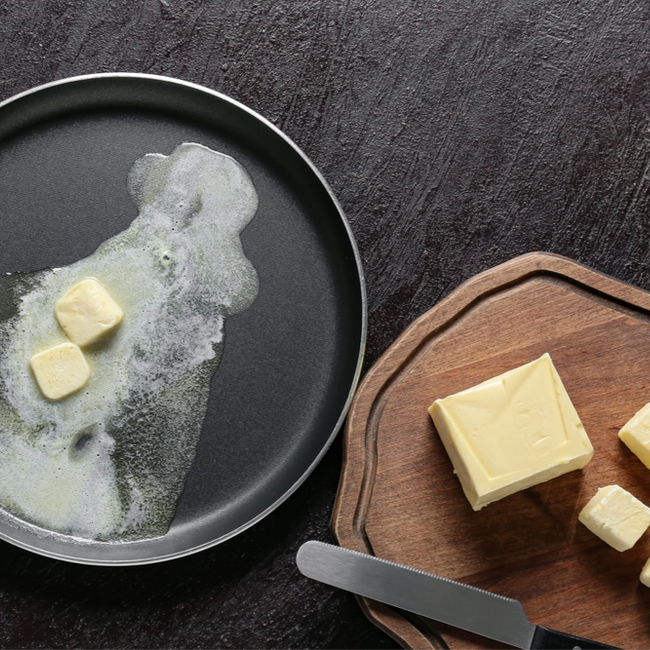
Mistake: Using Heavy Amounts of Processed Add-Ins
Using heavy amounts of processed “add-ins,” particularly butter, sugar, and starch when preparing meals is a common cooking mistake for anyone hoping to lose weight.
Butter, in particular (while undeniably delicious), can rack up an exorbitant amount of calories without your noticing. Although butter—and unsalted kinds— can provide you with Vitamin A and Vitamin D for your bone health, its cons really outweigh its pros when it comes to weight loss overall. It can cause an increase in LDL "bad" cholesterol, and it isn't high in "good" or "healthy" fats either, but rather, saturated fat linked to heart disease.
"A common cooking mistake people often make is using too much oil or butter when preparing to cook something," says McClain. "There are 120 calories in a spoonful of vegetable oil and 100 calories in butter, so it's important to measure out just what you need in order to avoid over-using those highly caloric ingredients," he adds.
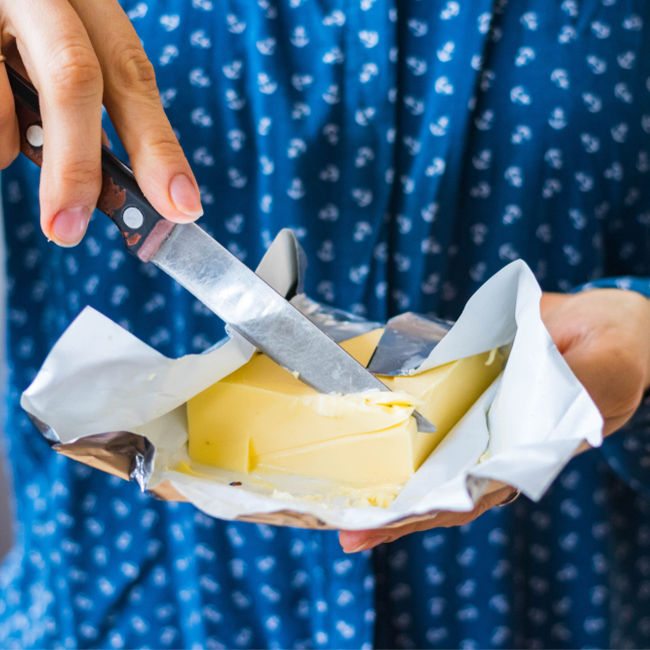
How Butter Deters Weight Loss
Adding heavy amounts of butter to your meal not only increases the caloric content of the meal itself, but also often increases the glycemic index. Prologo notes that this leads to blood sugar spikes that cause fatigue (which makes it hard to exercise) and hunger (by disrupting the hunger hormone axis).
Lastly, Prologo explains that adding processed butter can "disrupt the macronutrient balance" of the meal. "Macronutrient thermogenesis is a phenomenon by which the body burns calories during digestion," he says.
"When the macronutrient balance is weighted to fats and carbohydrates by these [processed] cooking additions, the body spends less energy digesting the meal, and therefore stores more of the calories as fat in the long run."
Ultimately, if you eat and cook with butter or other processed "add-ins"often, it's important to do so in moderation and to be aware of how much you are consuming if weight loss is your goal.




